An Inspiration etched in Melodies – Pta. Zarin Daruwala
Kunal Desai | desaikunald@gmail.com
‘That Parsi Girl’ as she was initially known due to her unfamiliarity with the usual all-male ensemble of musicians in Bombay film studios when she started playing for films at the age of 18. Eventually, Zarin Daruwala became a name to reckon with for any piece of Sarod playing in songs or background music. She became a top artist and Sarod exponent in her career as a musician.
Born in 1946, Sharma was the daughter of a police officer who encouraged her to take up Indian classical music. It’s interesting to know that she started learning the harmonium at the age of four and by the time she turned six, she was already giving public performances. But it was at the Swami Haridas Sangeet Sammelan in 1952 when she heard a Ravi Shankar–Ali Akbar Khan jugalbandi that she fell in love with the sarod. Tutored in the instrument by Pt. Haripada Ghosh, she also credited Pt. Bhishmadev Vedi, vocalist SCR Bhat, Laxman Prasad Jaipurwale, SN Ratanjankar, and the legendary violinist VG Jog as essential influences.
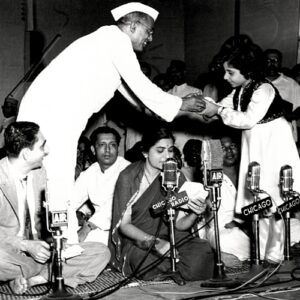 Identified as a child prodigy, she had her first brush with the film studios in the late ‘50s when she played the title music for Maasoom (released in 1960), a film that many remember for the ever-popular tune Naani Teri Morni Ko. But she began her association with the film industry in earnest four years later. When the music director Roshan wanted a Sitar-Sarod duet for the title music of the period drama Chitralekha (1964), sitar player Imrat Khan suggested Sharma’s name. Expectedly, both the young musician and her father were unsure of what to expect. But the recording went off well and Roshan asked her father if the sarod player could come the next day to record for the background score.
Identified as a child prodigy, she had her first brush with the film studios in the late ‘50s when she played the title music for Maasoom (released in 1960), a film that many remember for the ever-popular tune Naani Teri Morni Ko. But she began her association with the film industry in earnest four years later. When the music director Roshan wanted a Sitar-Sarod duet for the title music of the period drama Chitralekha (1964), sitar player Imrat Khan suggested Sharma’s name. Expectedly, both the young musician and her father were unsure of what to expect. But the recording went off well and Roshan asked her father if the sarod player could come the next day to record for the background score.
So, the next day, father and daughter landed at Mehboob Studios in Mumbai’s Bandra neighborhood. This time the entire orchestra was there. The teenager was intimidated. But when her father suggested they leave, she felt it would not look nice. They waited.
A few hours later, it was her turn. Years later, reminiscing about that moment, she said, “When I began to play, all the musicians who were standing around were very surprised. Because I was a lady, and lady players of sarod were very, very rare. And also, there were very few ladies in the film line, so they all were astonished. It seemed to me as if they’d never seen a sarod before. And people came to know about me because here I was just an 18-year-old Parsi girl playing in films.
According to Pt. Zarin Daruwala Sharma, many people perceive Sarod to be difficult to learn as it’s a fretless instrument. “It is a myth that the Sarod is difficult to command because it does not have frets. The Sitar has frets, but its players use a single fret to stress up to five or six notes. So, every instrument is demanding in its own way” she said.
 Being a film musician had often been looked upon as a matter of inferiority by classical music artists in those days as they were session musicians who played their pieces by reading the notations written by composers and arrangers. There was no creativity on their own. Pta. Zarin Daruwala Sharma shone out in both films as well as classical music was equally bright.
Being a film musician had often been looked upon as a matter of inferiority by classical music artists in those days as they were session musicians who played their pieces by reading the notations written by composers and arrangers. There was no creativity on their own. Pta. Zarin Daruwala Sharma shone out in both films as well as classical music was equally bright.
“I have always learned with a sense of determination, I remember Jaipurwale humming a tappa once. I requested him teach me the form, he thought it was not possible to reproduce the difficult patterns on the sarod. After rigorous practice, I could do that,” she remembered. Sharma performs her tappas with effortless ease on the Sarod and has fashioned her own style – a fascinating blend of Gayaki and Tant styles.
She played for the first time in the title score of Maasoom (1960). Later, she played for all the top composers like Roshan, Shankar Jaikishan, Ravindra Jain, Kalyanji Anandji, Laxmikant Pyarelal, R.D. Burman, etc.
It was in the film studios of Bombay where Zarin met her future husband and Sitarist Pt. Ashok Sharma. He was the son of Pandit Bhagatram of the Husnlal Bhagatram composer duo. Often, Zarin Daruwala had the opportunity to play Sarod pieces in tandem with Sitar pieces with musicians like Pt. Jairam Acharya, Ustad Imrat Khan, Ustad Rais Khan, etc.
Zarin Daruwala played many solo pieces as well on Sarod in many songs. Let’s have look at a few songs wherein she had played –
Bole Re Papihara | Iss Mod Se Jaate Hain | Naam Gum Jaayega | Mere naina saawan bhaado | Piya baawari | Man Re Tu Kaahe Na | Bechaara dil kya kare | Koi Matwala Aaya Mere Dware | Sajanwa Bairi Ho Gaye | Beeti na beetaayi raina | A ri pawan Dhundhe kise | Hume tumse pyar kitna | Is mod se jaate hain
She won numerous honors with the Dadasaheb Phalke Award, Sangeet Natak Akademi Award, and Maharashtra Gaurav Puraskar. She had an opportunity to perform before Her Majesty, the Queen of England when she visited India.
On April 8th, 2011 in Mumbai, Pta Zarin Daruwala ‘Sharma’ and Pt. Ashok Sharma received honors at the Swar Aalap event. Legendary composer Ravindra Jain, Dr. Sushila Rani Patel, Padma Shri Dr. N Rajam, and Eminent Comedian Johnny Lever congratulated the couple. Pt. Zarin Daruwala Sharma said, “Every song has equal values.” She also stated, “I am grateful to Swar Aalap. They were respectful to both of us. And I hope that the position that Swar Aalap now holds will expand in the future. I wish them great success in their endeavors.”
Pta. Zarin Daruwala Sharma will always be remembered for her contribution as a Sarod player and for being an inspiration to all the female musicians who have a passion for music and would love to pursue their careers in their chosen craft. Pta. Zarin Daruwala stayed in Andheri with her Sitarist husband Pt. Ashok Sharma in her later years. She passed away on 20th December 2014.


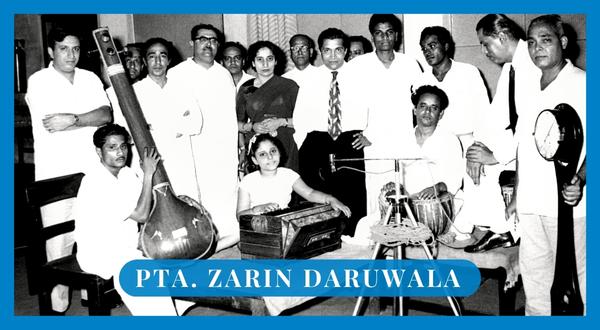
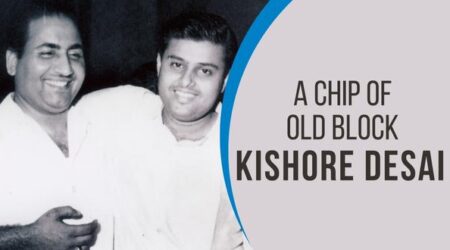
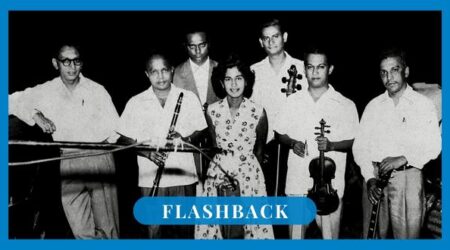
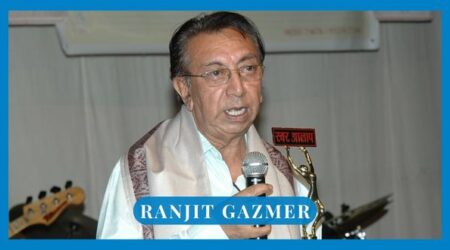

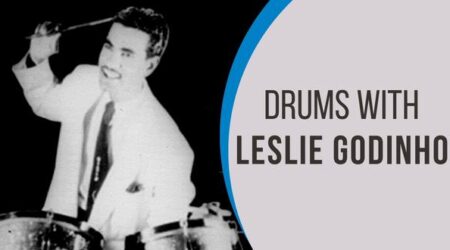
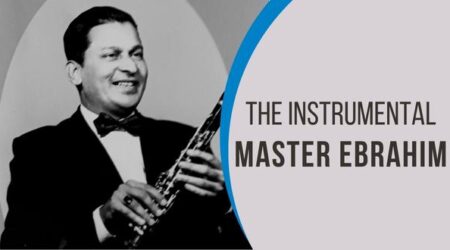
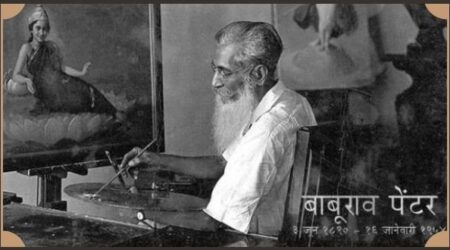
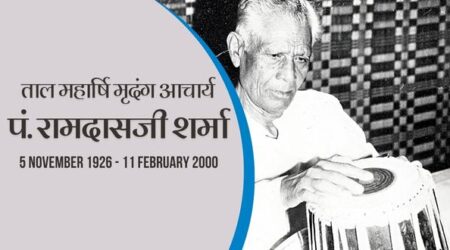

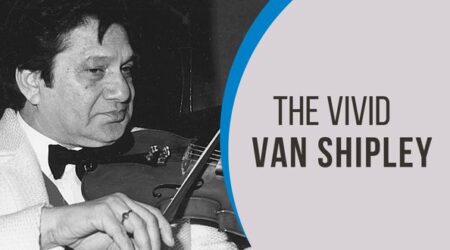

Leave a Reply